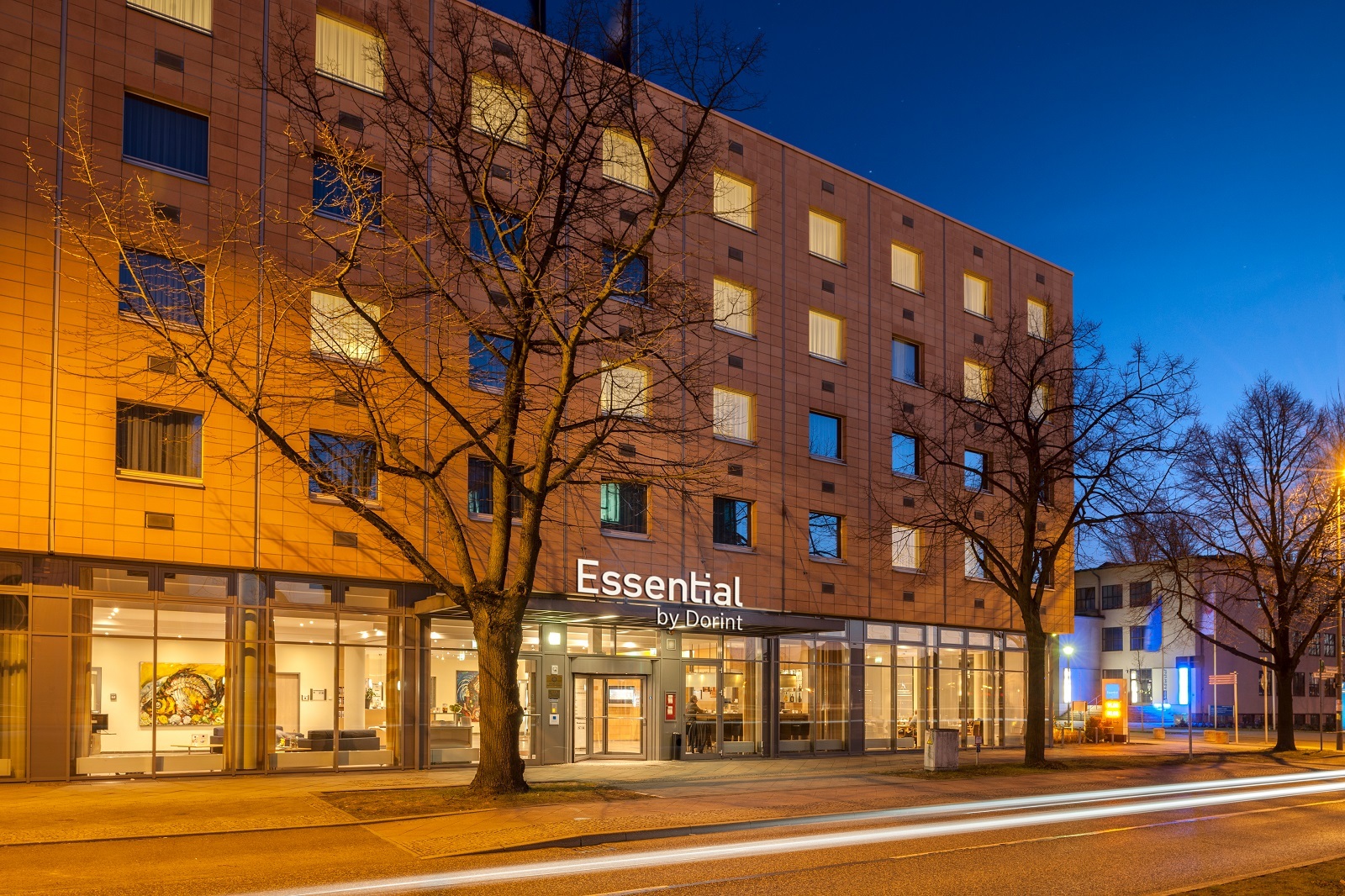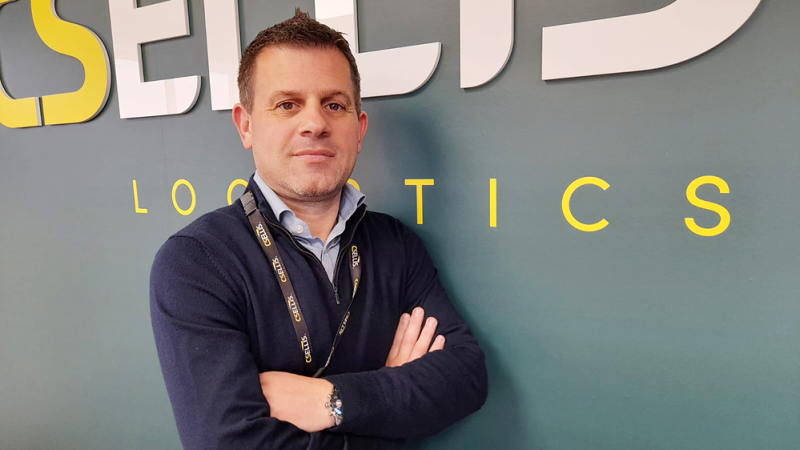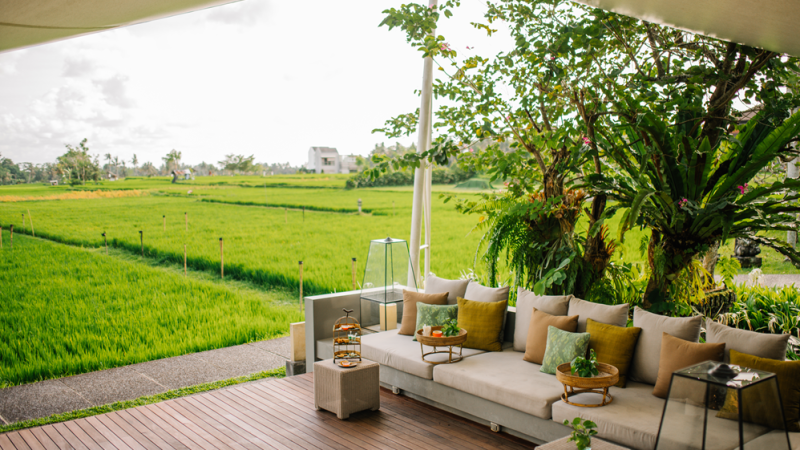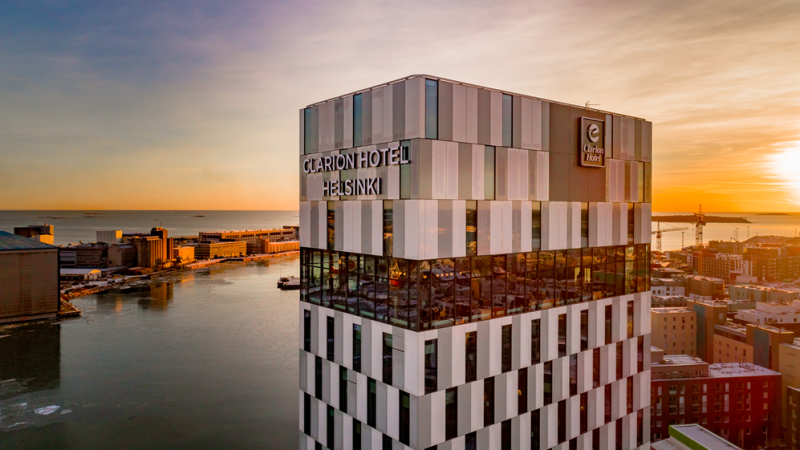Dorint Hotels is the second oldest and second largest German-owned hotel corporation, with a suite of brands that includes Hommage Hotels, Dorint Hotels and Resorts, and Essential by Dorint, covering the upscale, middle grade and economy market segments. In 2019 Dorint celebrated its 60th anniversary, and the firm is still going strong, with 64 locations across Germany, Switzerland and Austria, a staff of 3,800 people, and a competitive franchise proposition.
“What differentiates our brands is that we continue to believe in full-service brands. We don’t define ourselves through the product, but the people and the service,” explains Jörg T. Böckeler, CEO of Dorint Hotels. “We try very hard not to compensate shortfalls in service with a fancy product- some brands do that quite well, but we believe full service is important.”
An Authentic Experience
The company’s brands are quintessentially German, with 82% of its business coming from German-speaking markets.
 “People like us for our very high level of authenticity, and the individualism which we deliver through our service,” Böckeler says. “Our brand is well known in the meetings and events space, but we are also the single largest operator of resorts in Germany. No other company has that many resorts, though I believe our guests think of us as business hotels first and holiday resorts second.”
“People like us for our very high level of authenticity, and the individualism which we deliver through our service,” Böckeler says. “Our brand is well known in the meetings and events space, but we are also the single largest operator of resorts in Germany. No other company has that many resorts, though I believe our guests think of us as business hotels first and holiday resorts second.”
Böckeler is proud of Dorint’s reputation in the business space, but he also wants to capitalise on the authenticity that the company is known for.
“A few years ago, we did a repositioning among our brands, and one of the absolute mega trends we identified was that today’s customer wants an authentic experience in whatever location they are,” Böckeler explains.
Authenticity is a big word but pinning down what that means in practical terms is something else.
“We worked out that there are two parts to it,” Böckeler recalls. “Firstly, we need to bring the regional aspects of the location into the guest’s journey, creating truly local experiences through things like the decor and menu. But you also need truly authentic service to deliver it. This is done through our teams, our employees, or our ‘Hotel Heroes’ as we call them. Our hotel heroes are allowed to bring their individual local experience into the hotels, delivering it to our guests to provide a truly local and authentic guest experience.”
That experience is also built on a foundation of strong values.
“People are allowed to have their own personality. There isn’t a template,” Böckeler says. “They can bring what they have to offer into the hotel to inform the guest experience.”
A Generational Change
With Dorint valuing individuals, their unique personalities and what they can bring to the business, it is a particularly challenging time for the company as the German employment market is undergoing an unprecedented change.
“Ten years ago we were complaining we didn’t have enough skilled workers or people with the right attitude,” Böckeler tells us. “But today we simply don’t have enough workforce in Germany, full stop. To be a full-service environment we have to be extremely creative in what we offer as an employer.”
Böckeler is under no illusions that this is going to be a long-term challenge.
“That challenge will remain with us, potentially peaking at the beginning of the 2030s,” he explains. “We are looking at a potentially 30% smaller workforce across all industries by the 2030s, as baby boomers leave the workplace and generations X, Y, Z and Alpha come up, but with significantly fewer people.”
To attract this new generation, the entire recruitment paradigm has to shift, with an entirely new way of communicating, in more ways than one.
“We advertise on social media, offering a 60-second application. Then we react to applications within the hour regardless of whether it is Friday evening or even Sunday. You have to be fast-moving,” Böckeler insists. “Flexibility is the magic word. The flexibility of work location, the flexibility of work time, the flexibility of when to work and when not to work or how long a holiday can be. All the old kinds of governance are completely off the table. In the olden days, it was about what candidates can bring to the company as future employee. Now it’s about what the company can do for its employees. We not only think about what our employees’ purpose is but also our company’s purpose.”
A Sustainable Future
 This is not the only once-in-a-lifetime challenge Dorint Hotels is facing. For the first time since World War Two, Germany is facing energy blackouts.
This is not the only once-in-a-lifetime challenge Dorint Hotels is facing. For the first time since World War Two, Germany is facing energy blackouts.
“We are facing a very German challenge in the form of the energy crisis caused by government policies on where we get our energy, combined with the war in Ukraine,” Böckeler points out. “Combined with inflation, which is at its highest since the seventies, this is slowing our expansion process.”
Undaunted, Dorint still has the goal of growing by as many as ten hotels a year, even though Böckeler foresees a potential slowdown as the financial markets make it harder for investors to get money while interest rates have risen by 120%.
The company has already established a long-term plan, as Bettina Schütt, Dorint’s COO, explains.
“We launched a sustainability proposal a few years ago, at the end of 2019, and even through the Covid period we have focused our teams on energy measurements, and activities to save energy,” Schütt says. “We know exactly what our carbon footprint is and we are setting goals for our hotels with a team in each one looking at what else we can do. We are putting in automatic lighting, optimising big spends such as swimming pools and saunas. We have a building maintenance control system with software programmed every week to take into account the needs of the hotel.”
However, Schütt and Böckeler both emphasise that these efforts are being made without them having any impact on the customer experience.
The plan has come together in the form of a strategy called “Dorint Strategy 2027”, including some elements that will not be in place for years to come, and others that are already being implemented.
Two key pillars of this strategy are the watchwords of the hour- distribution, and the digital journey.
“We would like to use digitalisation and automation to enhance the guest journey and give staff more time to deliver services,” Böckeler tells us. “We want to create a meaningful environment, a future technology hub. We have set up a fully functioning virtual hotel to use as a test bed. Everything creative coming into the market right now, it is tested to the bone.”
It is a plan that will be enacted from Dorint’s brand portfolio.
“We plan to grow the Essential brand through franchise agreements, while also driving significant growth in our core brand,” Böckeler says. “Each of our brands has its own philosophy. We have a value proposition we call the blue string for the Dorint, and the golden string for the Hommage Brand, defining our values and the service we provide.”


Jörg T. Böckeler, CEO & Bettina Schütt, COO, Dorint Hotels








